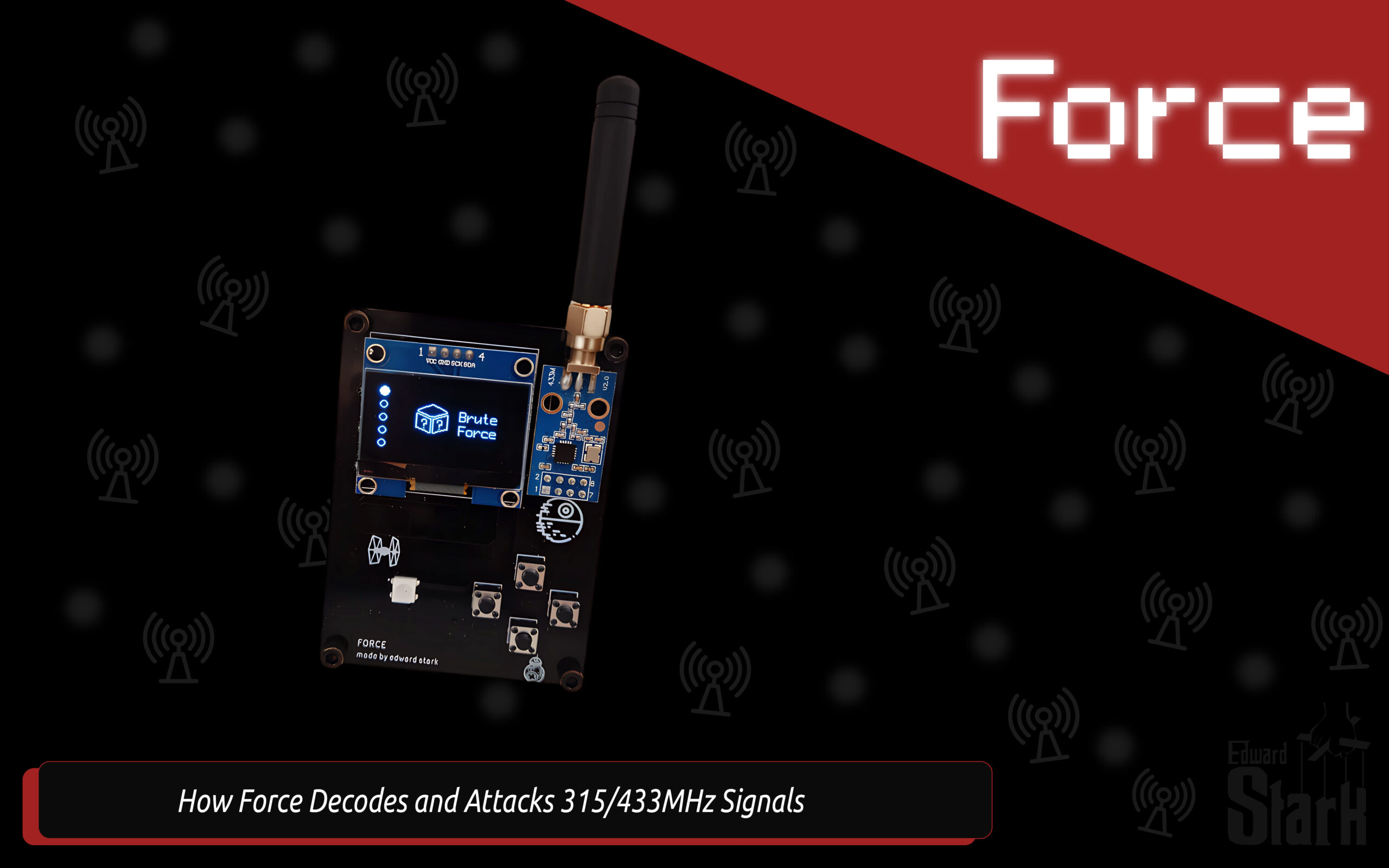The cart is empty!
How Force Decodes and Attacks 315/433MHz Signals

FORCE: A Powerful Tool for RF Signal Analysis and Penetration Testing
A breakthrough device for analyzing, testing, and exploiting vulnerabilities in 315 MHz and 433 MHz remotes.
What is FORCE?
A few months ago, I set out to build a project from scratch to improve my programming and PCB design skills. That project became FORCE—a powerful device designed for RF security research and penetration testing.
Key Features of FORCE
🔹 Brute Force Attack
FORCE can perform a brute-force attack on 315 MHz or 433 MHz frequencies, cycling through possible remote control codes to test the security of RF-based systems.
🔹 Signal Analyzer
If you have an unknown remote and don’t know its frequency, FORCE can help. Enter the analyzer mode, hold down a button on your remote, and FORCE will detect and analyze its frequency and RSSI (signal strength).
🔹 Replay Attack – Exploiting a Common Vulnerability
One of FORCE’s most powerful features is its ability to perform a replay attack.
How Does the Vulnerability Work?
Many 315 MHz and 433 MHz remotes still use fixed codes, meaning they send the exact same signal every time a button is pressed. This allows an attacker to record the signal and replay it later—essentially cloning the remote.
How FORCE Uses This Vulnerability
- FORCE captures the remote’s RF signal, protocol, and bit sequence.
- It then retransmits the signal, allowing it to act as the original remote.
- This technique can be used to test whether a system is vulnerable to RF replay attacks.
If a remote is vulnerable, the best solution is to switch to a rolling code system that changes with every button press, making replay attacks impossible.
Advanced Firmware Update System
FORCE includes an easy-to-use OTA (Over-the-Air) update feature. Here’s how it works:
-
When you enter update mode for the first time, FORCE will display:
- WiFi SSID (network name)
- Password
- IP Address
-
Connect to the WiFi network created by the ESP32.
-
Open a browser and go to the IP address displayed on the screen.
-
A list of available WiFi networks will appear—select yours, enter the password, and FORCE will save these settings for future updates.
This means you can update FORCE wirelessly, without needing a USB connection.
Upcoming Updates 🚀
FORCE is just getting started! I have huge updates planned.
The updates will make FORCE an even more powerful tool for RF security analysis.
Final Thoughts
FORCE is more than just a project—it’s a game-changing tool for RF security testing. Whether you’re analyzing remote signals, testing system vulnerabilities, or just exploring RF technology, FORCE provides a powerful and easy-to-use solution.
💡 Want to see FORCE in action? Stay tuned for upcoming tutorials! 🚀




